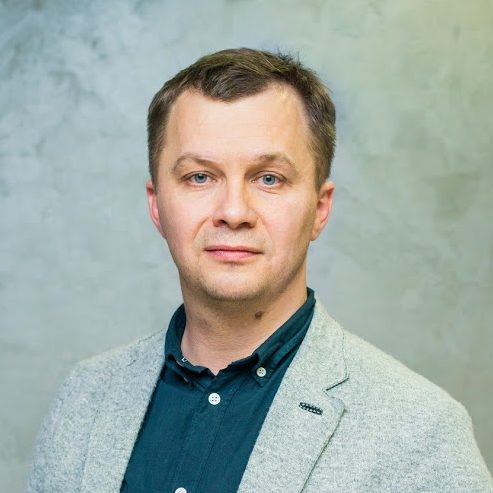In “Sapiens: A Brief History of Human Kind”, Yuval Noah Harari advances an explanation for superiority of Homo sapiens over other human species such as Homo neanderthalensis, Homo erectus, or Homo soloensis. Harari argues that it is the ability of Homo sapiens to create cultural constructs – myths – that gave us a critical advantage over other species and animal families.
“We can weave common myths such as the biblical creation story, the Dreamtime myths of Aboriginal Australians, and the nationalist myths of modern states. Such myths give Sapiens the unprecedented ability to cooperate flexibly in large numbers. Ants and bees can also work together in huge numbers, but they do so in a very rigid manner and only with close relatives. Wolves and chimpanzees cooperate far more flexibly than ants, but they can do so only with small numbers of other individuals that they know intimately. Sapiens can cooperate in extremely flexible ways with countless numbers of strangers. That’s why Sapiens rule the world, whereas ants eat our leftovers and chimps are locked up in zoos and research laboratories.”
If we accept Harari’s argument, then societies with more efficient myths will prosper while those with suboptimal myths will experience hardship and eventually vanish.
From an evolutionary perspective, Ukraine is an extremely young society. Today, it is undergoing a transition from the culture that once was governed by the myths of communism to the western democracy.
So, it is only natural that some of the current cultural constructs in Ukraine are influenced by competing external cultures. As a result, they are confused and incoherent. Some of these constructs are functional and help Ukraine. Others are holding us back. Here, I offer a list of five such dysfunctional cultural constructs.
There are good and bad people. We have been unlucky and have been governed by bad people. We just need to put the good people in power
The division into good and bad people is a very Soviet Union culture. The Soviet Union divided people in different groups: workers, farmers, teachers – and – kulaks, jews, tatars.
The modern developed societies take a more nuanced approach. They believe that people are predominantly rational and respond to incentives and rules of the game – institutions. So, even a very well intentioned person would betray the public, if there is opportunity to sufficiently enrich herself or if she or her family comes under threat. Thus, a society should create rules of the game to align incentives of officials with those of the public.
The foreign democracies can build our institutions
This idea is manifested by the efforts of the civil society, reformers, and the ruling elites to use foreign institutions as a carrot and stick for reforms in Ukraine. To many observers, the main reformer in Ukraine appears to be the IMF. Similarly, ff there is a conflict between the civil society and the state, there are appeals to the embassies of the Western nations to arbitrate.
However, in modern societies institutions are strong insofar they are supported by the public, in our case by the citizens of Ukraine in large. When the rules are violated, it is the public that comes out to protect these rules. If the public does not believe in these institutions, they are doomed.
Eradication of corruption/oligarchs/bureaucrats/organized crime/Russia (etc) will make us prosperous and democratic
This is a variation of the first idea – there are some bad people, or groups of people, that we should get rid of. The Western approach is to find a way to coexist and cooperate with everyone who is reasonable, while excluding from interaction those who cannot be reasoned with.
The state can start up the economy, either by protecting and supporting the right companies and industries or by creating markets and liberalizing economy
The belief in a capable state that can govern us through the transition again originates in the Soviet Union. The Soviet Union state was strong and there was no competing institutions. However, the facts today are clear: the Ukrainian state over the last 25 years has been unable to provide for people and ensure clear and fair rules of the game. Thus, the state has to be developed alongside with development of the democracy, markets, and the economy.
The subideas of protectionism or liberalization of the economy are too simplistic. The modern societies find a balance between the roles of the state and the markets. The markets give freedom, but sometimes fail. Only then, the state can intervene to correct a market failure. However, the state is not a substitute for markets.
A strong economy is an economy that produces most of its goods domestically, maximizes export and minimizes import
It is absolutely true that Ukraine should boost its production of goods and services. However, efficiency comes from specialization. Ukraine cannot be a leader in every imaginable good and service. The way to prosper is to become the best in the world in some specific areas and industries and trade with the rest of the world.
Ironically, Harari points to evidence that Sapiens ability to cooperate led to (“international J”) trade, while there was no trade by Neanderthals:
“While we can’t get inside a Neanderthal mind to understand how they thought, we have indirect evidence of the limits to their cognition compared with their Sapiens rivals. Archaeologists excavating 30,000-year-old Sapiens sites in the European heartland occasionally find there seashells from the Mediterranean and Atlantic coasts. In all likelihood, these shells got to the continental interior through long-distance trade between different Sapiens bands. Neanderthal sites lack any evidence of such trade. Each group manufactured its own tools from local materials.”
Attention
The author doesn`t work for, consult to, own shares in or receive funding from any company or organization that would benefit from this article, and have no relevant affiliations



